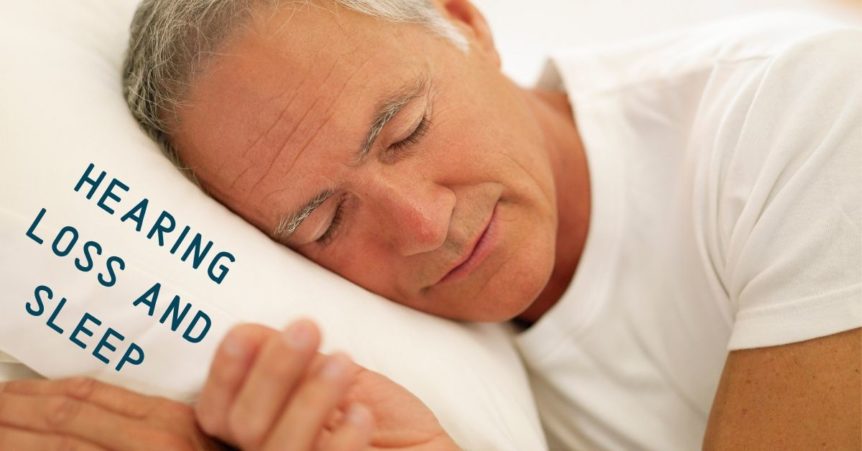Sleep is crucial to our physical health and mental health, giving body and mind the chance to take a break and recharge from a busy day. Lack of sleep can literally be exhausting but did you know that scientists now believe that insomnia can increase the risk of developing hearing loss and worsen the symptoms of tinnitus. Not only that but when you have trouble sleeping night after night eventually you can develop damaging side effects like depression, heart disease, high blood pressure, stroke, diabetes, and obesity. If sleep is eluding you perhaps your hearing could be at risk
Poor cardiovascular health
Perhaps the biggest link between lack of sleep and diminished hearing is the effect of insomnia on the cardiovascular system. Insufficient sleep is known to cause poor blood circulation throughout the body, including your ears. Because the tiny hair cells in the ear that detect sound waves and convert them to the brain rely on powerful blood flow to function properly, any cardiovascular issues can damage these fragile cells and become a contributing factor in hearing loss.
Connection to sleep apnea
You may not have ever thought to pair the two issues together, but if you have, or you know someone who has been diagnosed with sleep apnea, then it might well be worth making an appointment to see an audiologist. Sleep apnea is a very common disorder, which includes symptoms such as having one’s breathing move in shallow-type breathing or experiencing one or more significant pauses in breathing during sleep. The main symptoms of sleep apnea include a general feeling of unrest during the day and snoring through. While one may think that this can be harmless if sleep apnea is not treated it has been connected to an increase in risk for diabetes, high blood pressure, stroke or heart attacks.
You may ask, what exactly is the connection between sleep apnea and hearing. Well the organs in the inner ear require a regular, healthy blood flow supply. It’s this good circulation that is able to nourish delicate hair cells within your cochlea, and these are responsible for translating the noises your ears to collect into electrical impulses that make their way along the auditory nerve to the brain for interpretation into sounds that you can be understood. These fragile hair cells do not regenerate over time, meaning that if you hairs become damaged while you sleep your hearing can become seriously damaged.
About 43 percent of people with insomnia also have sleep apnea, which causes individuals to suffer from breathing issues that often wake them up repeatedly throughout the night. Studies have revealed that people with sleep apnea often have larger amounts of plaque in their blood vessels causing further constriction of blood flow to the hair cells and damage hearing.
Effects on tinnitus sufferers
Hearing loss isn’t the only way insomnia can affect your hearing health. It can also worsen the symptoms of tinnitus, or the phantom ringing, buzzing, humming, or whistling some people experience. Ringing in the ears obviously impacts quality of sleep and 50-60% of people afflicted with tinnitus mention a sleep disorder. Thus, there is a high correlation between tinnitus, insomnia and other sleep disturbances. Tinnitus and sleep issues tend to be a vicious circle; people with ringing in the ears find it difficult to sleep and the quality of their sleep diminishes. This, of course, leads to more sleep deprivation and exhibiting signs of sleep apnea including daytime sleepiness, lack of focus, irritability and other health issues.
There is not yet a cure for tinnitus, but scientists are studying the underlying causes of the condition, and exploring potential avenues for treatment, including electrical and magnetic stimulation of the brain’s hearing centers and deep brain stimulation to calm neural activity associated with tinnitus. Many of the common treatments for tinnitus involve addressing anxiety and managing your response to the internal noise you hear. These treatment strategies can make tinnitus less frustrating and disruptive to live with—and also help you sleep better.
Neighborhood Hearing Aid Center
Health experts agree that the average adult needs between seven and eight hours of sleep each night, although that number varies depending upon a person’s overall health and lifestyle. If you’ve experienced difficulty with your hearing, contact us at Neighborhood Hearing Aid Center to set up a hearing test. We look forward to helping you with the best treatment for your hearing needs.

